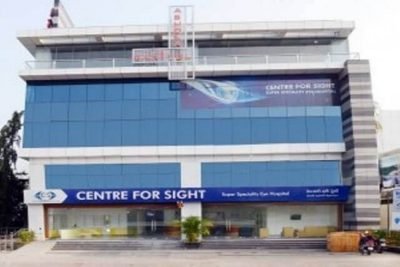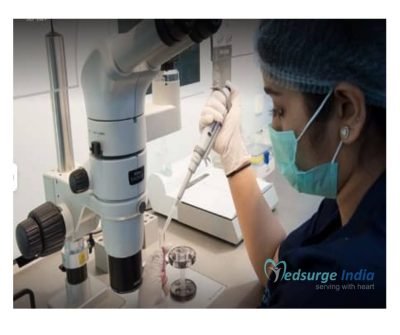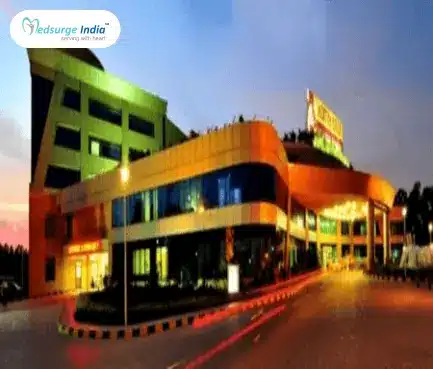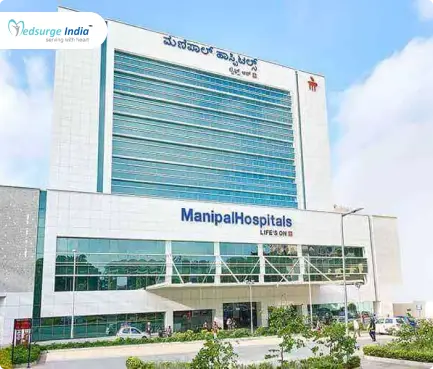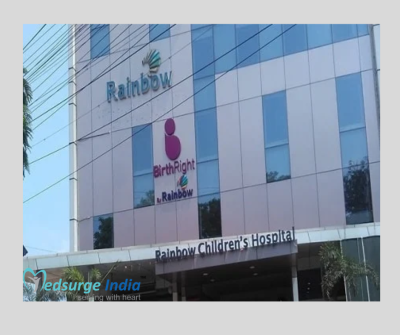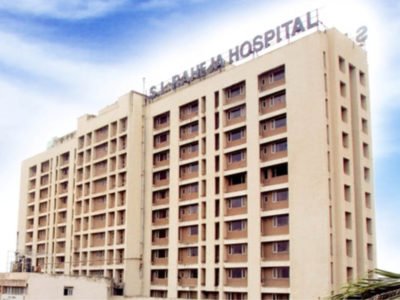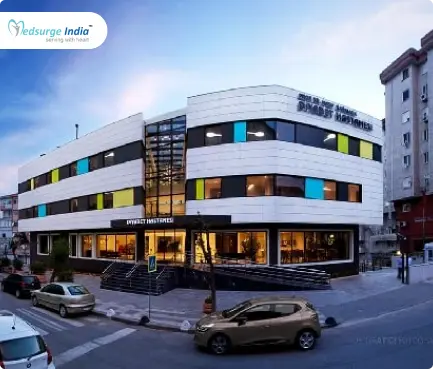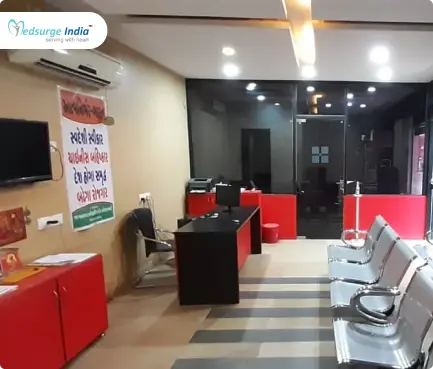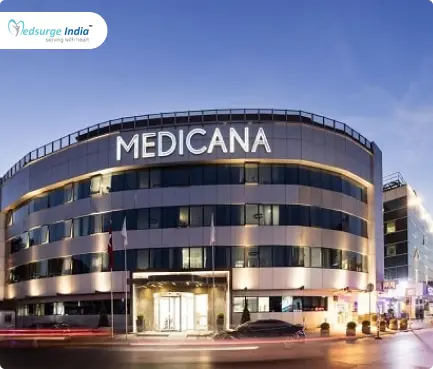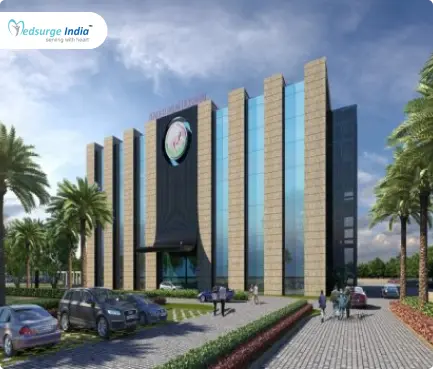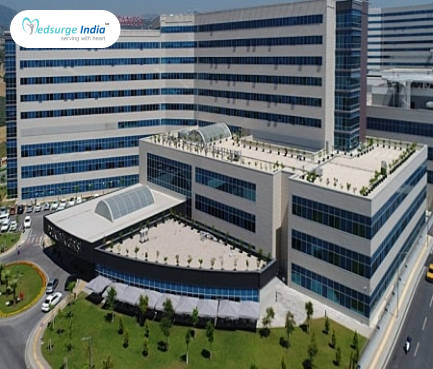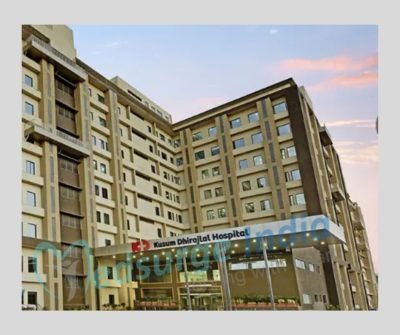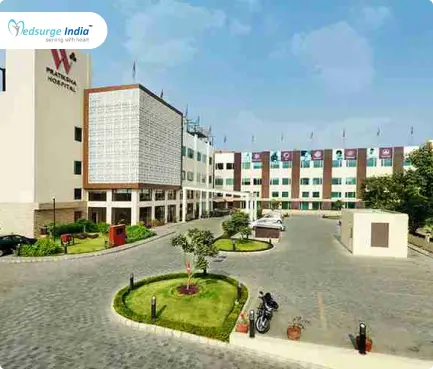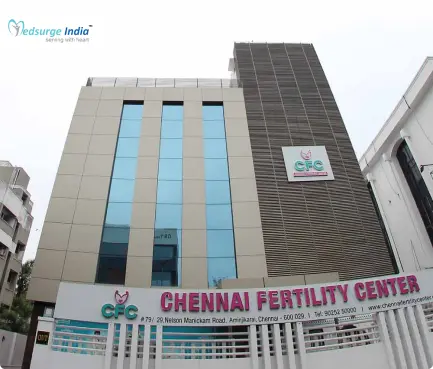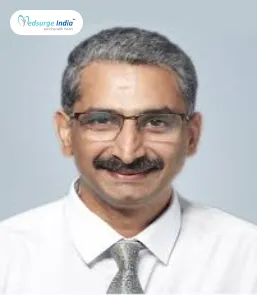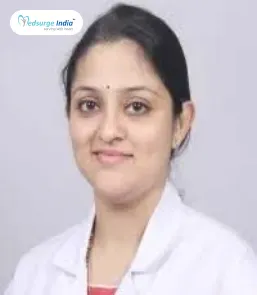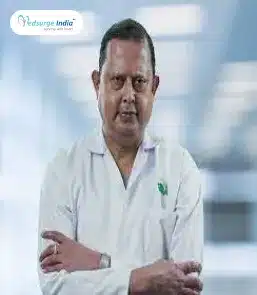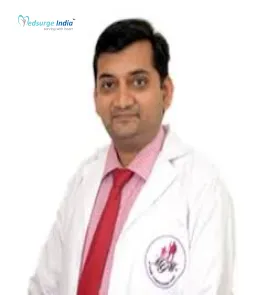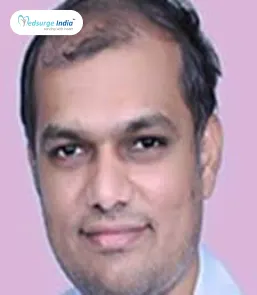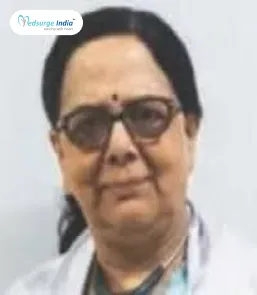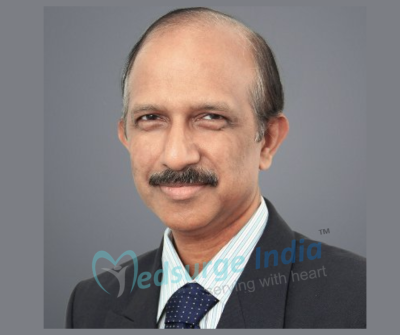
Thalassemia is an inherited blood disorder that impairs the production of hemoglobin and healthy red blood cells in the body. Alpha and beta thalassemia are two types. Thalassemia is genetically transmitted, which means that at least one of your parents must be a carrier. It is caused by a genetic mutation or the loss of specific gene segments. Thalassemia can induce anemia and fatigue-like symptoms that range from mild to severe.
The treatment for thalassemia frequently involves a bone marrow transplantation, thus the prices are very significant; however, India is one of the most affordable countries for medical procedures. The cost of thalassemia treatment in India is relatively low. The cost may also vary depending on other aspects such as the number of tourists, the country from which one is traveling, and the number of days spent for thalassemia treatment in India.
What Is Thalassemia?
Thalassemia is a hereditary (passed down from parents to children via genes) blood disorder that occurs when the body does not produce enough hemoglobin, a protein that is an essential component of red blood cells. When there is inadequate hemoglobin, the body’s red blood cells do not function efficiently and live for shorter periods of time, resulting in fewer healthy red blood cells moving in the bloodstream.
Red blood cells transport oxygen to all cells in the body. Oxygen is a type of nutrition that cells have been using to function. When there aren’t enough healthy red blood cells, there isn’t enough oxygen distributed to the rest of the body’s cells, which might make you feel fatigued, weak, or short of breath. This is known as anemia. Thalassemia can cause mild or severe anemia. Severe anemia can harm organs and cause death.
To describe the severity of the disorder, thalassemia is categorized as a trait, minor, intermedia, or major. These labels describe a range in which having a thalassemia trait means you may have moderate anemic symptoms or none at all. You might not require medical attention. Thalassemia major is the most serious type and usually requires ongoing treatment.
There are two types of thalassemia:
- Alpha thalassemia: You inherit four genes that produce alpha globin protein chains, two from each parent. Alpha thalassemia occurs when one or more genes are defective. The amount of defective genes you inherit determines whether or not you have anemia symptoms and, if so, how severe they must be.
- Beta thalassemia: You got one beta-globin gene from each parent. Your anemia symptoms and the severity of your disease are determined by the number of defective genes and the position of the deficiency in the beta-globin protein chain.
What Are the Symptoms of Thalassemia?
Thalassemia symptoms differ significantly depending on the case and are mostly determined by the degree of the mutation of the genes involved in the creation of hemoglobin protein chains. Thalassemias can cause no symptoms in their mildest form and can be fatal in their most severe form.
The symptoms listed below only relate to intermediate to severe cases of Thalassemia. These are only the most obvious symptoms. Depending on the type of Thalassemia, very particular symptoms may appear.
1. Asymptomatic (no symptoms)
If you are missing one alpha gene, you are not likely to develop symptoms. You may be asymptomatic if you lack two alpha genes or one beta gene. You may also experience moderate anemia symptoms such as fatigue. It is a common symptom of Thalassemia. A shortage of hemoglobin can result in a variety of further symptoms, including:
- Tiredness
- Shortness of breath
- Pallor
- Pain
2. Mild to Moderate
Beta thalassemia intermedia can cause mild anemia or the following symptoms associated with more severe disease:
- Growth issues
- Puberty is delayed.
- A type of bone abnormality known as “osteoporosis”
- A spleen enlargement
- Skeletal disorders may require surgery in the future. If your spleen becomes too large, your doctor may need to remove it.
3. Severe Symptoms
The lack of three alpha genes (Hemoglobin H disorder) frequently results in anemic symptoms from birth and leads to severe lifelong anemia. Beta thalassemia major (Cooley’s anemia) frequently causes severe anemic symptoms by the age of two. Severe anemia symptoms include those associated with mild to moderate conditions. Other symptoms may include:
- Appetite problems
- Skin that is pale or yellowish (jaundice)
- Urine with a dark or tea-colored tint
- The irregular bone structure in your face
Thalassemia Treatment Cost In India
The average Thalassemia Treatment Cost In India starts from USD 15000. For Thalassemia Treatment Cost in India, the expenses are subject to variation based on the patient’s condition and the specific treatment approach chosen by the doctor following the results obtained.
Types of Treatment For Thalassemia Treatment Cost in India
| Treatment | starting Price |
| Chemotherapy | USD 15000 |
| Bone Marrow Transplant | USD 18000 |
| Radiation Therapy | USD 4000 |
| Immunotherapy | USD 800 |
Thalassemia Treatment Cost in Various Cities in India
| Cities | Starting Price |
| Delhi | USD 15000 |
| Gurgaon | USD 15000 |
| Noida | USD 15000 |
| Mumbai | USD 16000 |
| Hyderabad | USD 15500 |
| Chennai | USD 15000 |
| Kolkata | USD 15000 |
| Bangalore | USD 16000 |
Please note that the pricing and the treatment for Thalassemia Treatment cost in India will vary depending on the patient’s choice and other various factors.
Factors That Can Affect Thalassemia Treatment Cost in India
The following here are some variables that can affect Thalassemia Treatment Cost in India:
- Medication costs.
- Duration of treatment.
- Geographical location.
- Hospitalization expenses.
- Government policies and subsidies.
- Medical tourism packages.
- Hospital reputation and infrastructure.
- The expertise and experience of medical professionals.
- The type and frequency of diagnostic procedures.
- The choice of treatment modality.
In addition, the quality and level of medical care and facilities offered are on par with renowned healthcare institutions worldwide, even after factoring in the costs of accommodation, meals, and transportation. Moreover, under the guidance of highly proficient doctors, Medsurge India ensures that patients receive the most affordable Thalassemia Treatment Cost in India.
What Are the Causes of Thalassemia?
Thalassemias are hereditary conditions. They are caused by a change in one or more genes involved in hemoglobin synthesis, more specifically, the genes involved in the formation of hemoglobin protein chains. There are four of these: two alpha chains and two beta chains.
In the event of Thalassemia, any of these chains can be compromised. There are also the following:
- Alpha thalassemias are distinguished by an alteration of the alpha chain, whereas beta thalassemias are distinguished by an alteration of the beta chain.
- The severity of alpha and beta thalassemia major treatment is determined by the number of mutated genes. The greater the importance, the greater the severity.
If only one of your parents is a carrier of thalassemia, you may acquire a type of disease known as thalassemia minor. If this happens, you will most likely not experience symptoms, but you will be a carrier. Some persons who have thalassemia minor experience minimal symptoms. If both of your parents are thalassemia carriers, you are more likely to inherit a more severe version of the disease.
Thalassemia is more widespread in Asian, Middle Eastern, African, and Mediterranean countries such as Greece and Turkey.
Know More – Leukemia Treatment Cost In India
Get Free Cost Estimation
Procedure
Thalassemia is diagnosed with a blood test. The blood count allows you to evaluate the shape and number of red blood cells, as well as the overall amount of hemoglobin. The biochemical study of hemoglobin allows for the differentiation of alpha-thalassemia from beta-thalassemia. Finally, genetic analyses can be used to determine the number of mutated genes and consequently the severity of Thalassemia.
Because symptoms generally happen within the first two years of your child’s life, moderate and severe thalassemia are frequently diagnosed in childhood.
Your doctor may conduct the following blood tests to diagnose thalassemia:
- A complete blood count (CBC): That includes hemoglobin and red blood cell number (and size) measurements. Thalassemia patients have few healthy red blood cells and less hemoglobin than the general population. They may also have red blood cells that are smaller in size than normal.
- A low reticulocyte count (a measure of young red blood cells): It is used to mean that your bone marrow isn’t creating enough red blood cells.
- Iron studies: It will reveal whether your anemia is caused by iron deficiency or thalassemia.
- Hemoglobin electrophoresis: It is used to detect Beta thalassemia
- Genetic Testing: Alpha thalassemia is diagnosed with the help of this test.
How Thalassemia is Treated?
Thalassemia treatment in India is influenced by a variety of factors, including the type of Thalassemia, its severity, and the individual’s health. Minor types do not require treatment, whereas severe forms require regular medical supervision.
The treatments listed below are only for intermediate to severe cases of Thalassemia:
- Blood Transfusions: It involves receiving red blood cell injections into a vein to restore normal amounts of healthy red blood cells and hemoglobin. Transfusions will be given every four months if you have moderate or severe thalassemia, and every two to four weeks if you have beta thalassemia major. For hemoglobin H disorder or beta thalassemia intermedia, transfusions may be required on occasion (for example, during periods of infection).
- Iron Chelation: It involves removing extra iron from your body. Blood transfusions have the potential to produce iron excess. Too much iron can damage your organs. Iron chelation therapy will be used if you require regular transfusions (which you can take as a pill).
- Supplements: Folic acid supplements might help your body in producing healthy blood cells.
- Bone Marrow or Stem Cell Transplant: The only treatment for thalassemia is bone marrow transplantation from a compatible related donor. Compatibility means that the donor’s cells have the same types of proteins, known as Human Leukocyte Antigens (HLA), as the individual receiving the transplant. During the procedure, your healthcare professional will infuse bone marrow stem cells from your donor into your bloodstream. Within one month, the transplanted cells will begin to produce new, healthy blood cells.
Suggestion
Depending on the type of thalassemia, ongoing medical care may be required to effectively manage the condition. Those who get transfusions must adhere to their transfusion and chelation schedules.
To prevent excessive iron buildup, people with thalassemia may need to avoid certain meals, such as spinach or iron-enriched cereals. People should consult their doctors about nutrition and exercise options.
Helpful – Top 10 Hematologists in India
The Most Important Frequently Asked Questions
Q: Can You Tell Me the Rough Estimate of the Price for the Treatment of Thalassemia in India?
A: Expect the price for thalassemia treatment in India to be a litter higher because it involves a bone marrow transplant. But if you are an international tourist coming for the treatment from overseas, then you will get the good value of your dollars or euro. Your cost treatment would be starting @ 22000 USD and extends up to 25000 USD.
Q: What Are the Factors Affecting the Cost of the Treatment?
A: From the standard of the hospital to the team of the doctors you select, the treatment cost depends upon the package you select, the number of travelers you are coming to India, and for how many days you would have to stay in India for the treatment.
Q: Who to Consult for the Thalassemia Treatment?
A: Consult a hematologist, or you could visit the general physician. On the flip side, there are cases when one must have to examine themselves under the supervision of a cardiologist, endocrinologist, and even gastroenterologists too!
Q: What If a Person Is Suffering from Thalassemia? Can He Lead a Normal Life?
A: Of course, you can do that too, with normal life survival. But if you have a condition where your heart is affected due to beta-thalassemia, the condition may turn worse. So, it’s advisable to consult the physician.
Q: Is Thalassemia Disease Passed on by Parents to Their Kids?
A: YES! Thalassemia is an intrinsic disease, and it could pass onto your children too. So, consult a dedicated specialist.
Q: What Is a Thalassemia Bearer?
A: Patients experiencing Thalassemia do convey Thalassemia but generally don’t encounter any recognized medical issues except iron deficiency. Contingent on the absence of the type of whichever beta-protein, the patient may have either alpha thalassemia or beta-thalassemia.
Q: Should I Consider Thalassemia Disease Lethal?
A: Well, if you have thalassemia minor, then it’s not a death-dealing. But if you have thalassemia major, your chances of survival decrease if you don’t undergo proficient medical treatment.
Q: How Curable Thalassemia Is?
A: Patients with extreme Thalassemia rely upon blood transfusions. A bone marrow transplant can be beneficial to fix Thalassemia, but the greater part of the occasions, it gets difficult to discover compatible donors.
Q: How Is the Common Thalassemia?
A: If we talk about worldwide statistics, beta-thalassemia is widely common. Every ear, thousands of infants are born with this disorder or disease.
Q: When Is the Ideal Time to Go for the Testing of Thalassemia?
A: You must go to the doctor and consult if you are planning for a baby or your wife or you are at the initial stage of pregnancy.
Q: Are There Any Specific Documents I Need to Carry During My Medical Treatment to India?
A: YES! Bookmark your copy of the medical file from the concerned doctor or hostile in India, which includes the patient’s information or hospital information. Also, blood tests, other health problems, prescriptions, and contact of the hospital or doctor is concerned, and you must carry those documents too!
Q: Does India Offer a Visa on Arrival for the Treatment?
A: Congrats yourself and consider yourself lucky if you are a citizen of the following countries – Japan, Cambodia, Finland, Indonesia, Philippines, Luxembourg, Myanmar, New Zealand, Singapore, South Korea and Vietnam, Bhutan, Nepal, and the Maldives can come to India for the treatment without the hassle of the visa problem up to 90 days!
Q: What Are the Requisite Essentials for a Clinical Visa to India?
A: Keep a substantial identification like a Passport and visa and the proof of medical treatment papers of the hospitals in India. You can apply for a medical visa to India. Up to 2 specialists who are blood family members can go with the patient under orderly independent visas.
Top Hospitals for Thalassemia Treatment In India
Top Doctors for Hematology
Dr. Sisir Kumar Patra
Senior Consultant
Experience: 18+ years of experience
Narayana Multispeciality Hospital, Andul Road, Howrah
Howrah, India
Dr. Kishore Kumar S
Senior Consultant , MBBS, DM, MD
Experience: 14 years of experience
Chennai , India
Dr. Santanu Basu
Consultant
Experience: 34 years of experience
Ruby General Hospital, Kolkata
Kolkata, India
Dr. Amit Upadhyay
Senior Consultant MD, MBBS
Experience: 20 years of experience
Pushpawati Singhania Research Institute, New Delhi
New Delhi, India
Dr. Srinivas Chakravarthy Gummaraju
Director
Experience: 19 years of experience
Apollo Hospitals, Jubilee Hills Hyderabad
Hyderabad, India
Dr. Ujal Mani
Senior Consultant
Experience: 42+ years of experience
NH Rabindranath Tagore International Institute of Cardiac Sciences, Kolkata
Kolkata, India
Dr. Soumya Bhattacharya
Consultant , MBBS, MD, FRCP, MRCP
Experience: 26 years of experience
Apollo Gleneagles Hospital, Kolkata
Kolkata , India
Dr. TPR Bharadwaj
Consultant , FRCP, MD, MBBS
Experience: 44 years of experience
Apollo Hospitals, Greams Road, Chennai
Chennai, India
Dr. Shyam Rathi
Consultant
Experience: 14 years of experience
Fortis Hiranandani Hospital, Vashi
Mumbai, India
Dr. Dhaval Fadadu
Senior Consultant
Experience: 12+ years of experience
Manipal Hospital, Panaji, North Goa
North Goa, India
Dr. Preethi Jeyaraman
Experience: 11+ years of experience
G Kuppuswamy Naidu Memorial Hospital, Coimbatore
Coimbatore, India
Dr. Aniruddha Purushottam Dayama
Chief
Experience: 15 years of experience
Fortis Memorial Research Institute, Gurgaon
Gurgaon, India
Dr. Nataraj KS
Consultant
Experience: 14 years of experience
Sri RL Jalappa Hospital & Research Centre, Tamaka
Bangalore, India
Dr. Sachin Suresh Jadhav
Head of Department
Experience: 18 Years
HCG Cancer Centre, Bangalore
Bangalore
Dr. Sarmila Chandra
Senior Consultant
Experience: 25+ years of experience
NH Rabindranath Tagore International Institute of Cardiac Sciences, Kolkata
Kolkata, India

